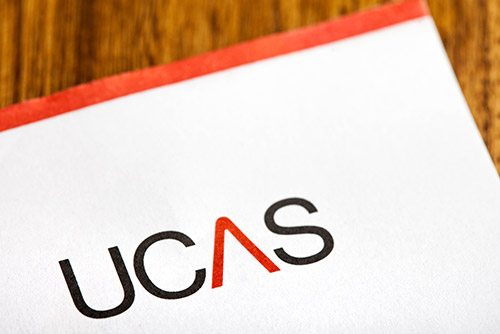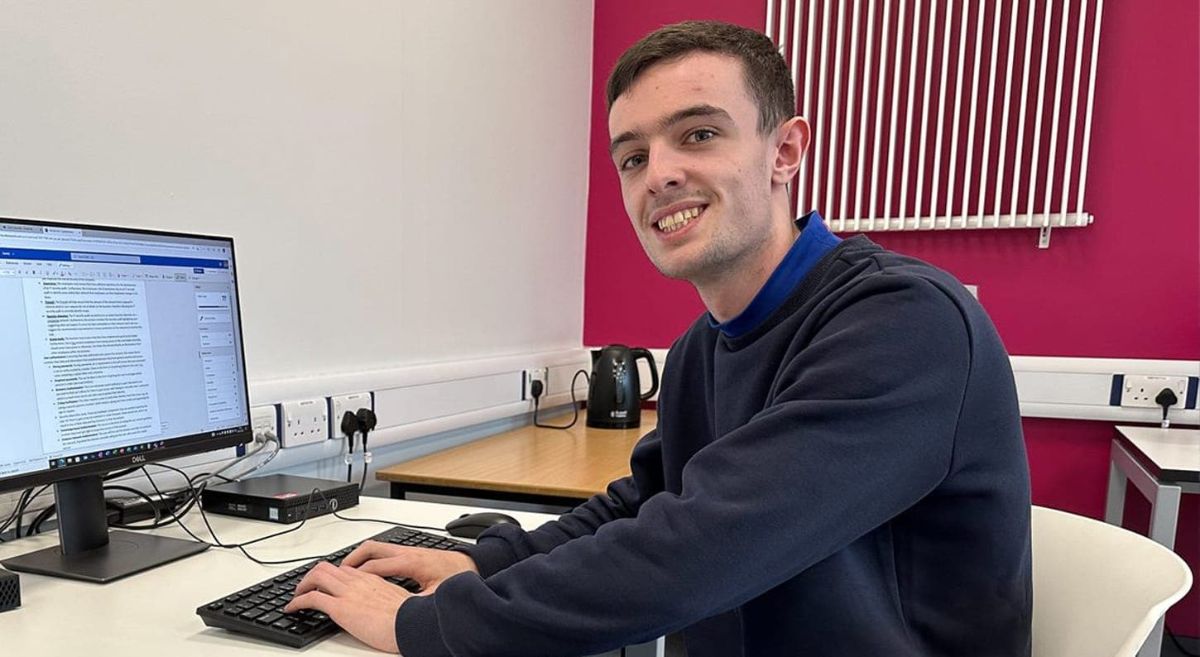
Pearson BTEC HND in Computing
The purpose of the BTEC Higher Nationals in Computing is to enable students to develop industry current skills, to ensure that the future needs of the rapidly evolving IT sector are fully met.
Available Sessions
We have 2 sessions available for application on this course in Lisburn, Bangor.
Are you ready to dive into a world of endless possibilities? The IT industry is booming, and the demand for skilled professionals has never been higher. From the latest gadgets to ground breaking innovations, technology is shaping our world in incredible ways.
This course will be your digital passport, granting you access to a vast array of IT topics and industries. Explore the cutting edge of technology, discover your passion, and become a key player in the digital revolution. Computing is a global language, spoken by innovators and visionaries around the world.
The HND aims to equip students with a broad range of computing skills, enabling them to explore a range of subject areas and find their specialism. The first year of the programme is the HNC.
This qualification will provide you with knowledge and practical experience in programming, networking, database design and development as well as other core skills required for employment within the computing industry.
Please note, course fees are payable on each year of the programme.
General Entry Requirements
The general entry requirements below identify the minimum qualifications needed to apply for the programme. Other qualifications will be considered on an individual basis on application. You are required to upload a copy of your qualification certificates to show how you meet the entry requirements for the programme prior to enrolment. Applications will also require successful completion of the admissions process.
GCSE/ Level 2 Requirements
• GCSE grade C/4 in English Language, or Level 2 Certificate in Essential Skills Communication, or equivalent in an approved alternative qualification.
AND
• GCSE grade C/4 in Mathematics, or Level 2 Certificate in Essential Skills Application of Number, or equivalent in an approved alternative qualification.
AND
• Passes in 4 different subjects (can include English Language and Mathematics as above), with 1 at GCE Advanced (A) level (grades A-E), and 3 at GCSE level (grades A*-C/9-4), or equivalent in an approved alternative qualification.
Course Entry Requirements
A minimum of 64 UCAS Tariff points including:
• GCE A level (A2): Typical grade profile CC
OR
• [RQF] Pearson BTEC Level 3 Extended Diploma in with overall award profile MPP
OR
• [RQF] Pearson BTEC Level 3 Diploma with overall award profile MM
OR
• Access to HE Diploma (NI): 45% overall and 45% in level 2 Access Mathematics.
OR
• An equivalent in an approved alternative qualification.
Accreditation of Prior Learning
Alternatively, you can provide evidence of your ability to undertake the programme by meeting the requirements for the Accreditation of Prior Learning (APL) process, either through Accredited Prior Certificated Learning (APCL) or Accredited Prior Experiential Learning (APEL). Further details on APL can be found in the HE admissions process section of our website and the HE Accreditation of Prior Learning SOP.
International Students English Language Requirements
International applicants, from Non-Native English speaking countries, must have evidence of English Language Level B2 on the Common European Framework of Reference for Languages:
• IELTS 6.0 (Academic) (minimum of 5.5 in all skills)
• PTE Academic 51 (minimum of 46 in each part)
• Or equivalent UKVI-approved English Language Test For further information please contact our International Department at international@serc.ac.uk
Units studied on the HNC include:
- Programming: Learn how to design and implement algorithms using industry relevant IDE’s and languages.
- Networking: Develop skills to help you install, operate and troubleshoot a small network.
- Professional Practice: Work as a group to develop leadership skills and positive team dynamics, relevant to the IT industry.
- Database Design & Development: Discover appropriate tools to design and develop relational database systems.
- Security: Use critical thinking, analysis, and reasoning to assess and manage IT security risks.
- Planning a Computing Project: Utilise research skills, project planning and problem solving to explore and present emerging technologies.
- Software Development Lifecycles: Develop a theoretical and practical understanding of software design tools, techniques, and methodologies.
- Maths for Computing: Learn mathematical principles to support the development of software.
The HND 2nd year provides students with a non-specialist ‘general’ pathway, allowing students to further explore breadth of computing without committing to a particular professional specialism. Units studied on the 2nd year include:
- Computing Research Project: Gain confidence in problem-solving and research activities to support investigations in the workplace.
- Business Process Support: Optimise decision making and develop an appreciation for data through industry tools to report and present information.
- Data Structures & Algorithms: Using a suitable programming paradigm, expand your programming knowledge by implementing complex data structures.
- User Experience & Interface Design: Plan, build, and measure UI designed interfaces with specific user groups in mind.
- Games Development: Design and develop your game concepts using tools and techniques associated with the games industry.
- Internet of Things: Create prototype IoT solutions using a combination of hardware and software.
- Virtual & Augmented Reality Development: Plan and build a VR or AR solution to meeting your own needs or those of a client.
Assessment is scheduled throughout the course using a combination of assignments and practical work/observations. Each unit is graded individually with an overall single final grade (Pass, Merit, or Distinction) awarded at the end of the course.
Students are assessed using a range of methods. These may include:
- Class tests: Work will be completed exam conditions, typically during your timetabled session.
- Coursework: You will be asked to complete research and/or report on your development activities in a formal report.
- Presentations: Students will present their findings to peers with some external entities involved where appropriate.
- Practical: You may be asked to demonstrate your skills by completing assigned tasks/activities.
This is dependent on the requirements of each unit of study. Oral, written or online feedback will be provided during the course to help improve and monitor performance.
Students that successfully complete the HNC and HND programmes traditionally progress to one of the following areas:
Related Degree Programmes
Students that wish to further their studies may undertake a related Level 6 qualification, either at a university or at SERC. Articulation agreements are currently supported by the following universities:
- Queens University Belfast (Year 2 Entry)
- Edinburgh Napier University (Year 3 Entry)
Employment
This Higher National programme has been designed to equip students with the knowledge required to thrive in the changing world of work. Roles may include, but are not limited to:
- Software Engineer: Create applications and systems using programming knowledge/code.
- Network Engineer: Design, build, and maintain networks for individuals or clients.
- UX Designer: Prototype systems and services to ensure that client needs, and accessibility requirements are met.
- Games Developer: Design and develop entertainment software for PCs, consoles, or mobile devices.
Pearson is committed to delivering learning that is rooted in the real world and to develop work-ready graduates with the professional skills and behaviours that employers need. The course will help learners develop a wide range of skills including, but not limited to:
Technical Skills
- Programming (Language reviewed yearly to meet the needs of industry).
- Systems Testing
- Data Management
- Design Tools and Techniques
- Development Tools
Employability Skills
- Critical Thinking
- Emotional Intelligence
- Entrepreneurship
- Leadership
- Reflective Practice
- Decision Making
- Team Working
Available Sessions
We have 2 sessions available for application on this course in Lisburn, Bangor.
Enquiries Information
For more information or help with this course send us an enquiry and a member of our team will get back in touch.

UCAS Information
You can apply directly to SERC for this course using the Apply Now buttons.
If you apply directly to SERC we will process a UCAS application on your behalf in accordance with the Data Protection Act 2018/ UK GDPR.
Applications to our full-time undergraduate Higher Education courses can also be made through UCAS.
View SERC on UCASAvailable Sessions
| Title | Campus | Start | Spaces | Fee | Apply or get more information | |
|---|---|---|---|---|---|---|
|
Pearson BTEC HND in Computing
Y10622BF1A-26/27-FT
|
Bangor
|
31/08/2026
|
20+ | £3150.00 |
|
|
|
Pearson BTEC HND in Computing
Y10622LF1A-26/27-FT
|
Lisburn
|
31/08/2026
|
18 | £3150.00 |
|
|
Please select a campus from the list above to view the available sessions. |
||||||
Customer Enquiries
Need more information or have a question about this course? Send us a message below and we will get in touch.
Start New EnquiryTerms & Conditions
Students will be required to comply with SERC's Terms & Conditions of study.
We strive to ensure the description of courses on SERC's website and in publications is accurate. However, for various reasons there may be occasions when the College may need to change arrangements or be unable to deliver classes due to circumstances such as reduced funding. If there are insufficient numbers applying for a course it may not be viable to deliver the class.
Courses are continually reviewed to take advantage of new teaching approaches and developments in research, industry and the professions. Please be aware that modules may change for your year of entry. The exact modules available and their order may vary depending on course updates, staff availability, timetabling and student demand. Please contact the course team for the most up to date module list.

Higher Education
If you have just completed your A-Levels, Higher Education is most likely the option for you. HE usually covers HNC, HND & Foundation Degree level of courses including our Higher Level Apprenticeships.
Explore Higher EducationLatest Events
Stay connected to SERC: Your guide to upcoming college events!







